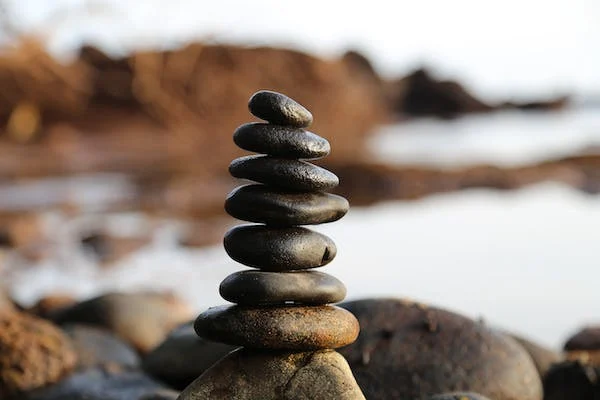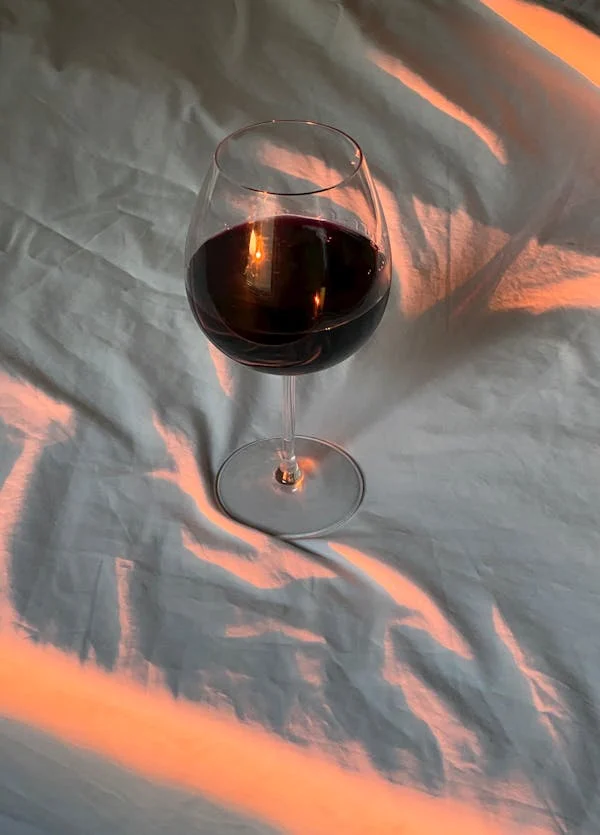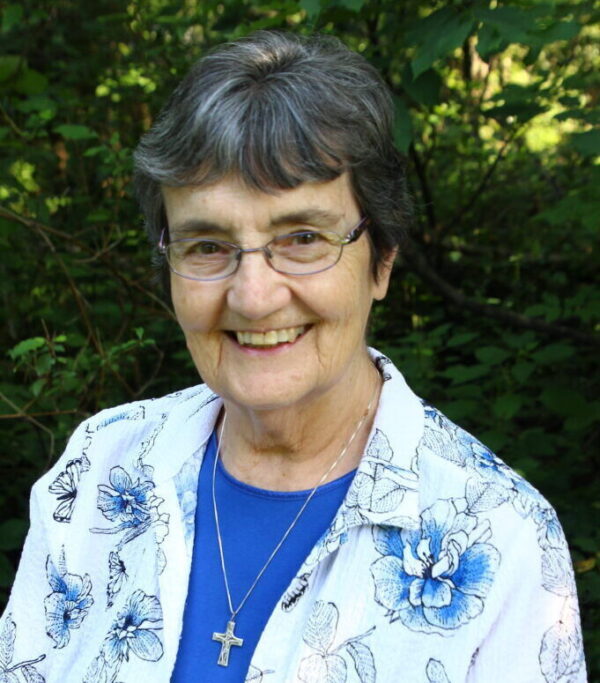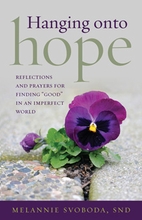Prayer swings on two hinges: regularity and spontaneity. In the Jewish tradition, these two hinges are called keva (the fixity of the prayer book) and kavanah (the spontaneity of the heart.)
Let’s look at the first hinge: regularity. Prayer needs to be regular. We don’t pray once a year, once a month, or even once a week. We pray regularly. For most of us, that means daily. Someone has said, “For the child of God, prayer is kinda like calling home every day.” The Trappist monk Thomas Merton put it this way: “Prayer is our daily  appointment with Mystery.” That means we don’t pray just when we feel like praying. Prayer is such a need, such a responsibility, it transcends our feelings. Nor must we always come up with our own words when we pray. Our faith has a rich tradition of prayers we can use: the psalms, those prayers we memorized long ago like the Our Father or Hail Mary, the rosary, The Divine Office, novenas, or the prayers of the saints or spiritual writers. (Even a blog like this one might help!)
appointment with Mystery.” That means we don’t pray just when we feel like praying. Prayer is such a need, such a responsibility, it transcends our feelings. Nor must we always come up with our own words when we pray. Our faith has a rich tradition of prayers we can use: the psalms, those prayers we memorized long ago like the Our Father or Hail Mary, the rosary, The Divine Office, novenas, or the prayers of the saints or spiritual writers. (Even a blog like this one might help!)
Some of us set a certain time to pray: in the morning, while driving to or from work, during our lunch break, or in the evening before crawling into bed. Some say they don’t have time to pray—not even 10 minutes. But my friend Bishop Bob Morneau of Green Bay reminds us that each day consists of 144 10 minute segments. He asks, “Is it too much to ask to give one or two of those segments to our relationship to God each day?” Some of us have a regular place to pray: a favorite chair, the back porch, a chapel, the outdoors.
But if prayer is characterized only by regularity, it could soon deteriorate into something very mechanical. We could end up, for example, reciting only someone else’s words instead of communing with God or Jesus in our own words.
So prayer needs that second hinge: spontaneity. Spontaneity in prayer means inner devotion, interior imagination, the heart. We don’t visit a good friend  and sit and read them a book. No, we share with them what is on our mind and in our heart. We don’t have to plan our conversation with a friend either nor do we have to choose our words very carefully. No, we can be spontaneous—sometimes even surprising ourselves with what we share. Often we find we have thoughts and feelings we didn’t even realize we had until we are in the presence of someone we love and trust. The same thing happens in our prayer.
and sit and read them a book. No, we share with them what is on our mind and in our heart. We don’t have to plan our conversation with a friend either nor do we have to choose our words very carefully. No, we can be spontaneous—sometimes even surprising ourselves with what we share. Often we find we have thoughts and feelings we didn’t even realize we had until we are in the presence of someone we love and trust. The same thing happens in our prayer.
In all of this we must remember the purpose of prayer. Rabbi Arnold Wolf reminds us of one purpose of prayer. He says our prayer is not trying to get God “to do as we wish.” Instead, our prayer is trying to “help us wish to do what God needs doing.” Or, as Rabbi Heschel wrote, “Prayer is an invitation to God to intervene in our lives.” Sometimes I modify his words and say, “Prayer is an invitation to God to interfere with our lives.” So when we pray, we must be ready for anything!
Are these two hinges (regularity and spontaneity) a part of your prayer life?
What helps you to keep your “daily appointment with Mystery”?
PS #1: A few weeks ago I wrote about faith and plum dumplings. I even put my mother’s recipe at the end of the reflection. Fran McCreary of Pasadena, California, made the plum dumplings for her parents. Her mother is Bohemian (Czech)/Hungarian. Fran sent me a picture of her parents eating the dumplings. The picture is so precious, I thought I’d share it with all of you:

PS #2: Thank you for the prayers for my retreat! I had a wonderful week of quiet, solitude, prayer, relaxation, and pondering.








11 Responses
Sr. Melannie,
Thanks for the wonderful reflection on prayer. It hit home since I am trying to look for a new outlet for my prayer life.
I have the regularity down but I am working on the spontaneity. Recently, I came upon an article on contemplative meditation. I am exploring that quiet type of prayer. It’s been interesting being present to God in silence.
Glad you had a good retreat.
Kathleen
Dear Kathleen, It’s a good sign when you look for some new ways to enrich your prayer–as you are doing. Yes, beautiful things can happen when we just sit in silence…No words are really necessary. Thank you for sharing! Melannie
Good Morning, Sr. Melanie,
I pray regularly morning and night and I trust in God all day long while driving, sewing, doing the mundane things that seem to sometimes be my life. Thanks for the great reflection.
Dorothy
Dear Dorothy, It seems as if you’ve made your prayer the “book ends” to your day. Many other people have found this type of “regularity” enriching. And the mundane tasks can free our minds and hearts to commune with God. Thank you for your wise words! Melannie
Hi Sr. Melannie, I have shared with others in my family that I pray for them each morning during my commute. I travel through a tunnel that I call my “prayer tunnel”. As I drive through, I ask our Father God to keep each of them safe and pray for any particular need they have.
I had a good retreat with you at Villa Maria at the beginning of the month — it reminded me to how enriching it is to pray in nature — so glad you had a good retreat.
:)Cathy
Dear Cathy, I loved your idea of the “prayer tunnel.” That commute time can be a great time for prayer. It was good meeting you at the Villa! Thanks for writing! Melannie
Hi, Melanie, we met at Sea Isle, NJ this past summer…a wonderful retreat…I ‘ve followed your Sunflower Seeds ever since…the one with the picture of the folks eating the plum dumplings put such a smile on my face and heart…thank you…glad your retreat was peace-filled and welcome back…God bless. Beverly
Dear Beverly, It’s nice to hear from someone that I met in Sea Isle, that beautiful place! And yes, the picture of the couple eating the plum dumplings put a smile on my face too. Thank you so much for writing! Melannie
Sr. Melanie, Thank you for a beautiful reminder about the many forms that prayer can take. As for me, the spontaneity hinge of my prayer is strong, especially these days when several friends and students are dealing with serious issues that I can support through prayer. I do, however, need to strengthen the regularity hinge of my prayer. I think that I need to set aside regular time for spiritual reading. You mentioned the writings of Thomas Merton. I see he has many books on amazon. Is there any book in particular that you would recommend for someone new to his writing?
Thank you!
Maryann
p.s. I love the plum dumpling sequel and the baking/spirituality connection it invokes! You might enjoy Peter Reinhart’s book __Bread Upon the Waters: A Pilgrimage Toward Self-Discovery and Spiritual Truth__. He’s a lay brother in the Christ the Saviour Brotherhood and a master bread maker; he teaches bread making classes here in Charlotte. The book beautifully connects the stages of bread making to one’s spiritual journey.
Dear Maryann, Thank you for the book recommendation–for me and my readers! You asked about Thomas Merton. You might want to start with his autobiography, “The Seven Storey Mountain” (1948). He revised his book “Seeds of Contemplation” many times. The latest version was published in 1961. I always liked “The Sign of Jonah.” “The Silent Lamp” by Shannon is a good biography by a friend of Merton’s. A more detailed one is Michael Mott’s “The Seven Mountains of Thomas Merton.” I hope that helps. There’s lots of articles about Merton on line too….Thanks for writing, Maryann! Melannie
So well said…thank you!